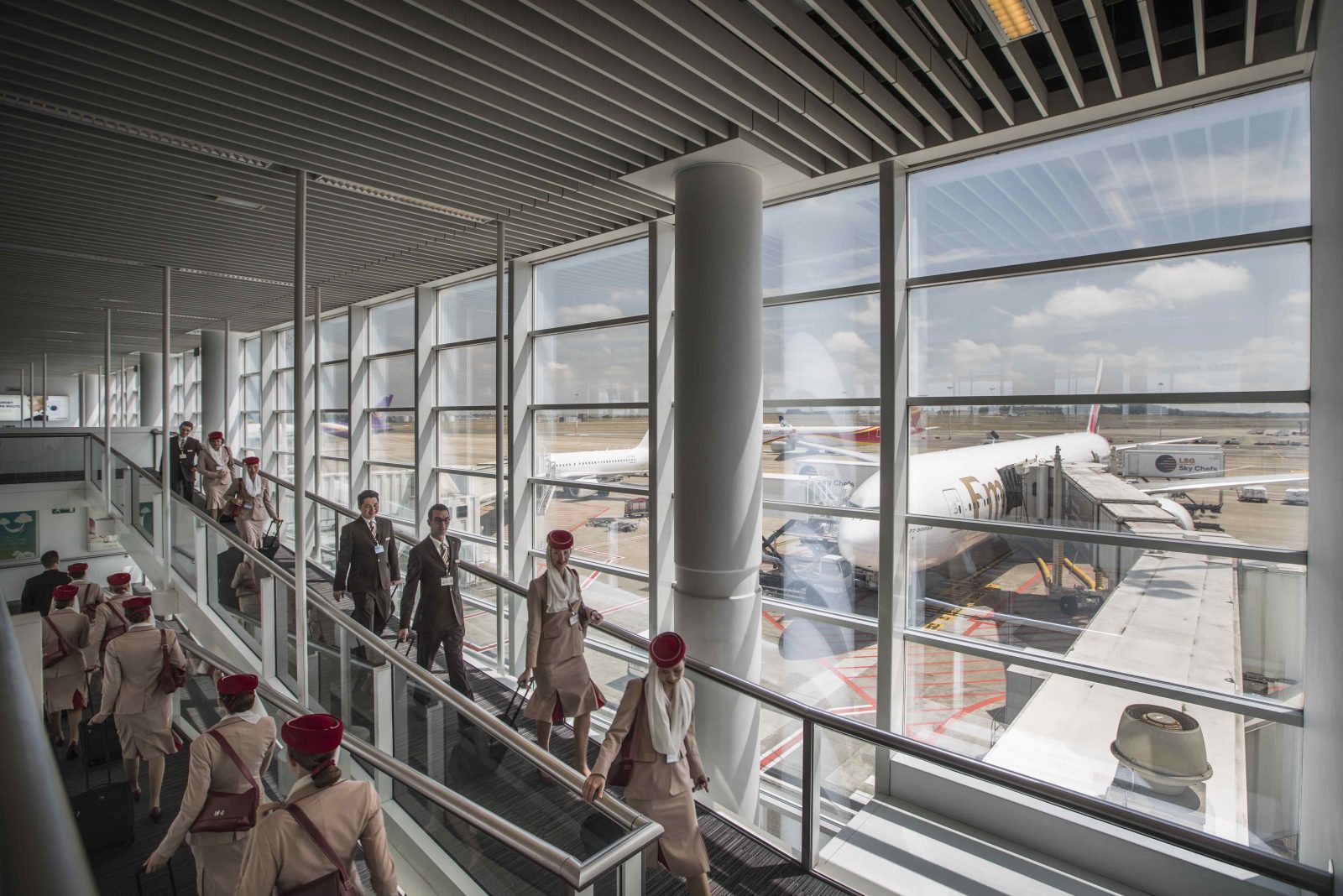
Last Thursday, a long-serving member of Emirates cabin crew tragically fell to her death from the open door of a parked Boeing 777 aircraft at Entebbe International Airport in Uganda. While Emirates has said it will fully support an investigation by the Ugandan authorities, there’s growing concern that the UAE’s General Civil Aviation Authority (GCAA) still hasn’t opened its own inquiry (please see update at very end of article).
While it’s been widely reported that the flight attendant may have deliberately opened and then jumped from the door of the aircraft in a planned suicide bid, the exact details of her death are still not fully known. It’s believed the victim was still alive when first attended to by medical personnel but died shortly after arriving at a hospital, 10 miles away from the airport.
Understandably, the incident has left Emirates’ cabin crew community in shock, as colleagues leave messages of condolences, the incident has shone a spotlight on the subject of mental ill-health. But its important to note that we don’t know whether for sure the victim intended to commit suicide or if there were other circumstances leading to her death.
At the moment, Emirates is itself describing the events that took place in Entebbe as a “tragic incident” – that’s very different to saying it was an ‘accident’ for example. So why hasn’t the GCAA publicly announced an investigation yet?
As the UAE’s official aviation authority, the GCAA is responsible for regulating and overseeing aviation safety and security not only at home but also for any airline registered in the UAE – wherever they may be in the world.
As a signatory of laws governed by the International Civil Aviation Organisation (ICAO), the agency must investigate air accidents and incidents involving aircraft registered in the UAE – Just like the Emirates aircraft in Entebbe.

The point here is whether what happened in Uganda would be classed as an ‘aircraft accident’ by international standards – but the law is very clear:
“an accident is as an occurrence associated with the operation of an aircraft which takes place between the time any person boards the aircraft with the intention of flight until such time as all such persons have disembarked in which:
- A person is fatally or seriously injured
- The aircraft sustains damage or structural failure
- The aircraft is missing or is completely inaccessible.”
It’s understood that the Entebbe incident took place as the crew were preparing the aircraft for boarding, putting the event firmly within the definition of an aircraft accident.
Now, it’s important to note that the GCAA wouldn’t be required to investigate if it was determined the injury was self inflicted or caused by another person – but of course, there’s no confirmation that this was in fact the case.
At the very least, one would expect some type of public statement, acknowledging the incident. Wouldn’t they?
The reaction of the GCAA is in stark contrast to other recent events. Just a few days before the Entebbe incident, a Turkish registered plane crashed in Iran after taking off from Sharjah in the UAE – Within hours, the GCAA had publicly Tweeted about the incident. Not so in this case – instead, complete silence.
We even reached out to the GCAA to see whether they would class the Entebbe incident as an ‘aircraft accident’ or whether they intended to do any type of investigation. Unfortunately, the GCAA failed to respond to our enquiry.
In the past the agency has been criticised for an apparent conflict of interest – one of the chairman of the GCAA, His Highness Sheikh Ahmed bin Saeed Al Maktoum is also the chairman and chief executive of Emirates airline.
(Updated: 20th March 2018): In a statement, the GCAA have now told us:
“As Uganda is the State of Occurrence, the AAIS of the United Arab Emirates followed up with the Managing Director Civil Aviation Authority of Uganda regarding the subject Occurrence.
No information regarding their intention to investigate the Occurrence was received from the Managing Director Civil Aviation Authority of Uganda.”
Mateusz Maszczynski honed his skills as an international flight attendant at the most prominent airline in the Middle East and has been flying ever since... most recently for a well known European airline. Matt is passionate about the aviation industry and has become an expert in passenger experience and human-centric stories. Always keeping an ear close to the ground, Matt's industry insights, analysis and news coverage is frequently relied upon by some of the biggest names in journalism.







